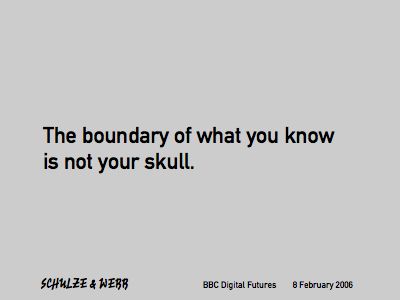
The boundary of what you know is not your skull.
The mind doesn’t bother storing information that is reliably in the world.
Most of what I’m talking about today is going to be about what we know, what we can see almost instantly, rather than what we deduce. And so most of what I talk about today is going to share this quality—things we’d expect to be learned are hardwired. Things we’d expect to be inside the head, are outside it.
And if there’s anything else everything rests on, it’s that perception isn’t an event, a thing that happens just like that. It’s a process. Hearing and seeing are a series of deductions about the world.
Deductions that happen quickly, what I just called “knowing” is preconscious and you don’t notice it happening. What happens later is conscious. You do it deliberately, but it’s slower.
Slower and faster doesn’t really capture the vastly different subjective feeling between these two ends of the perception process, so let’s look at another example.